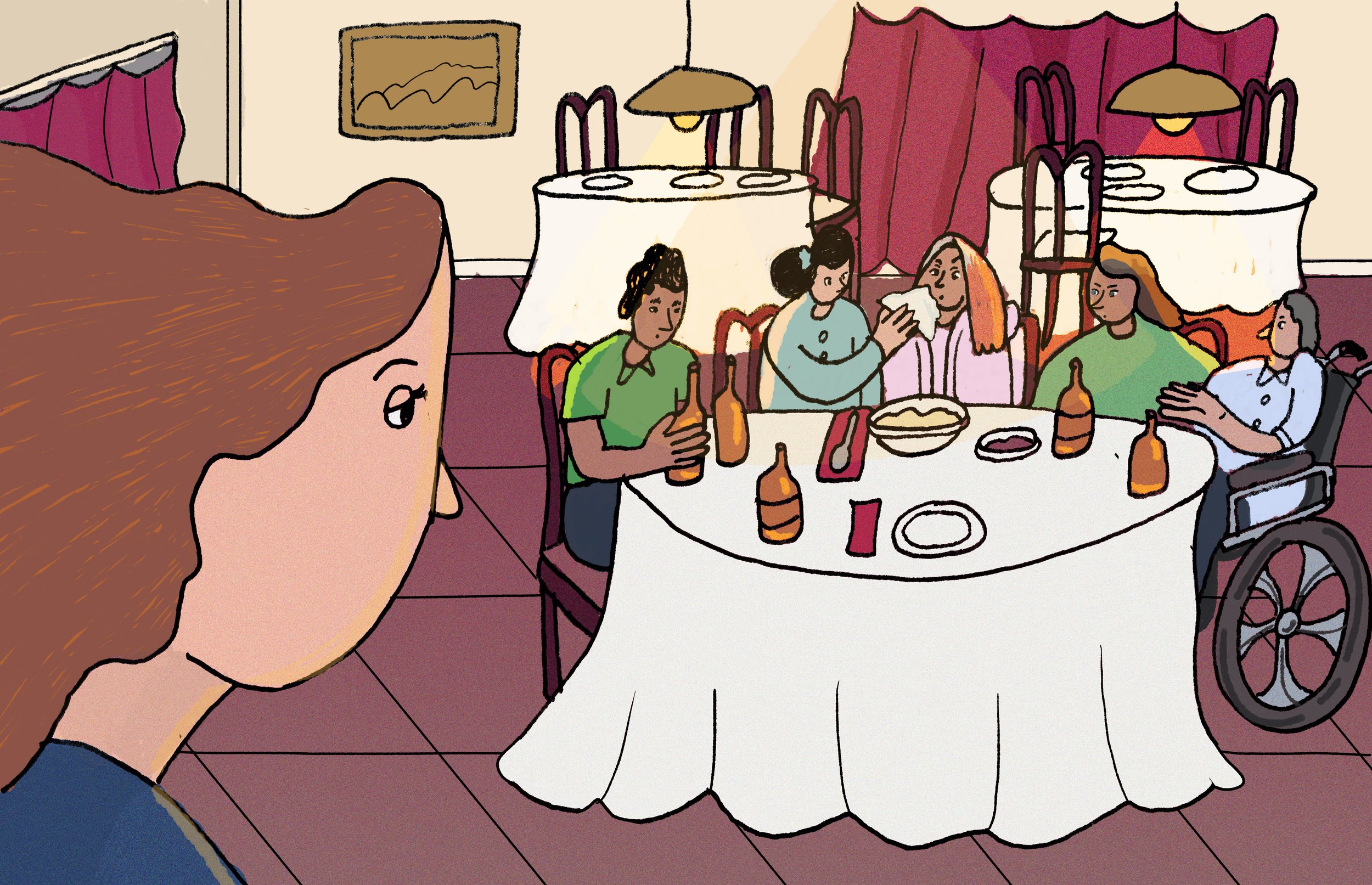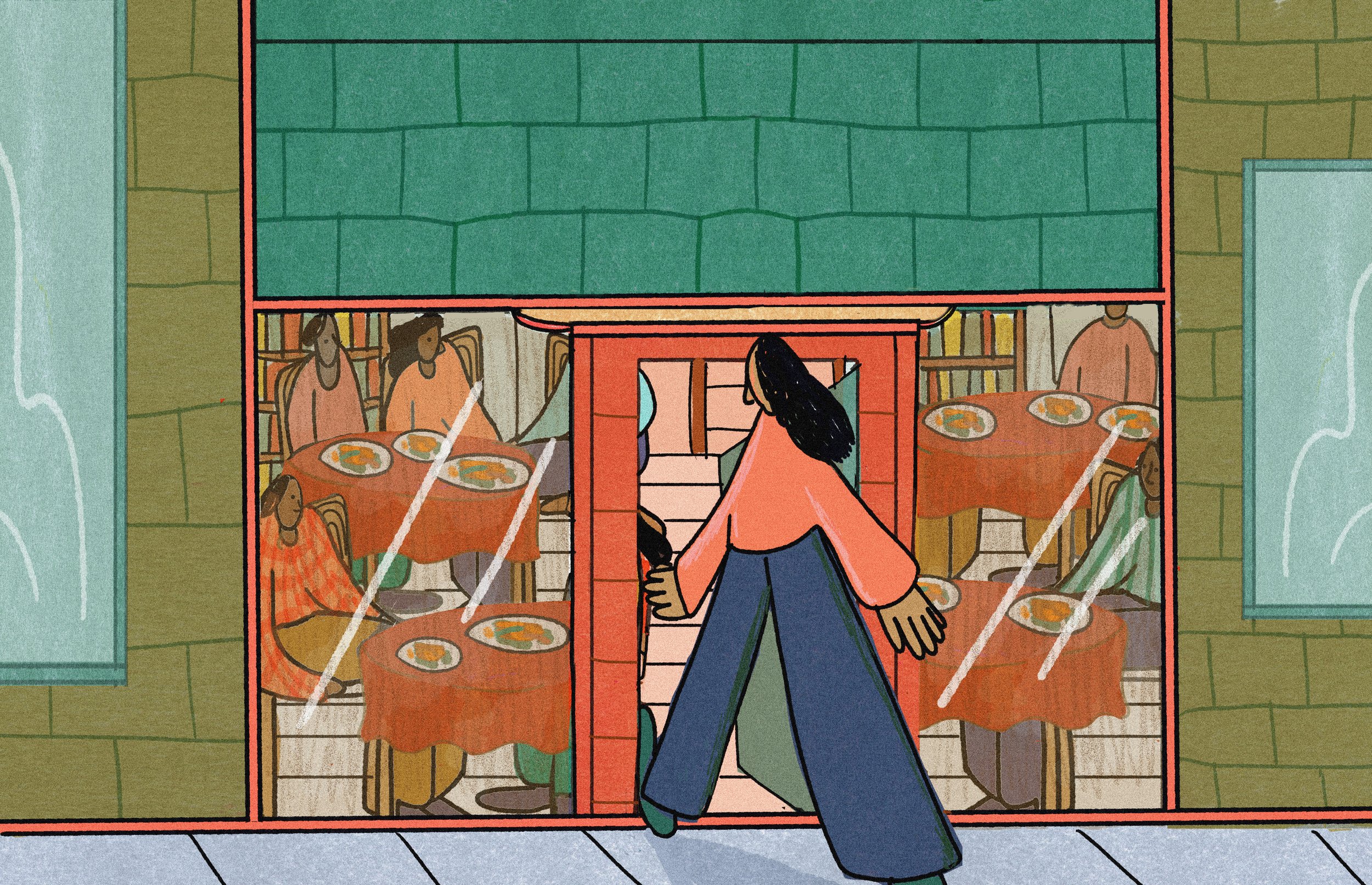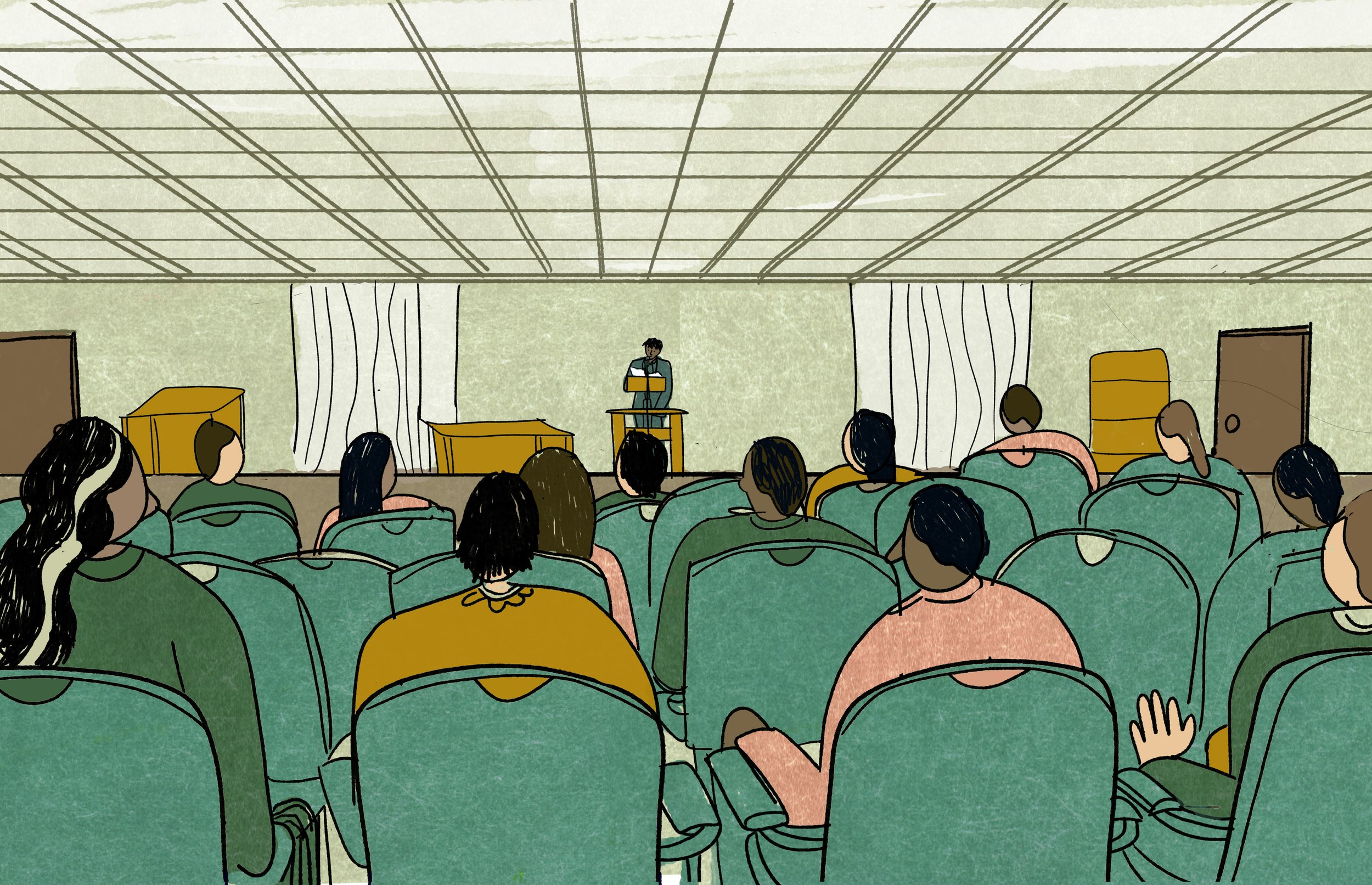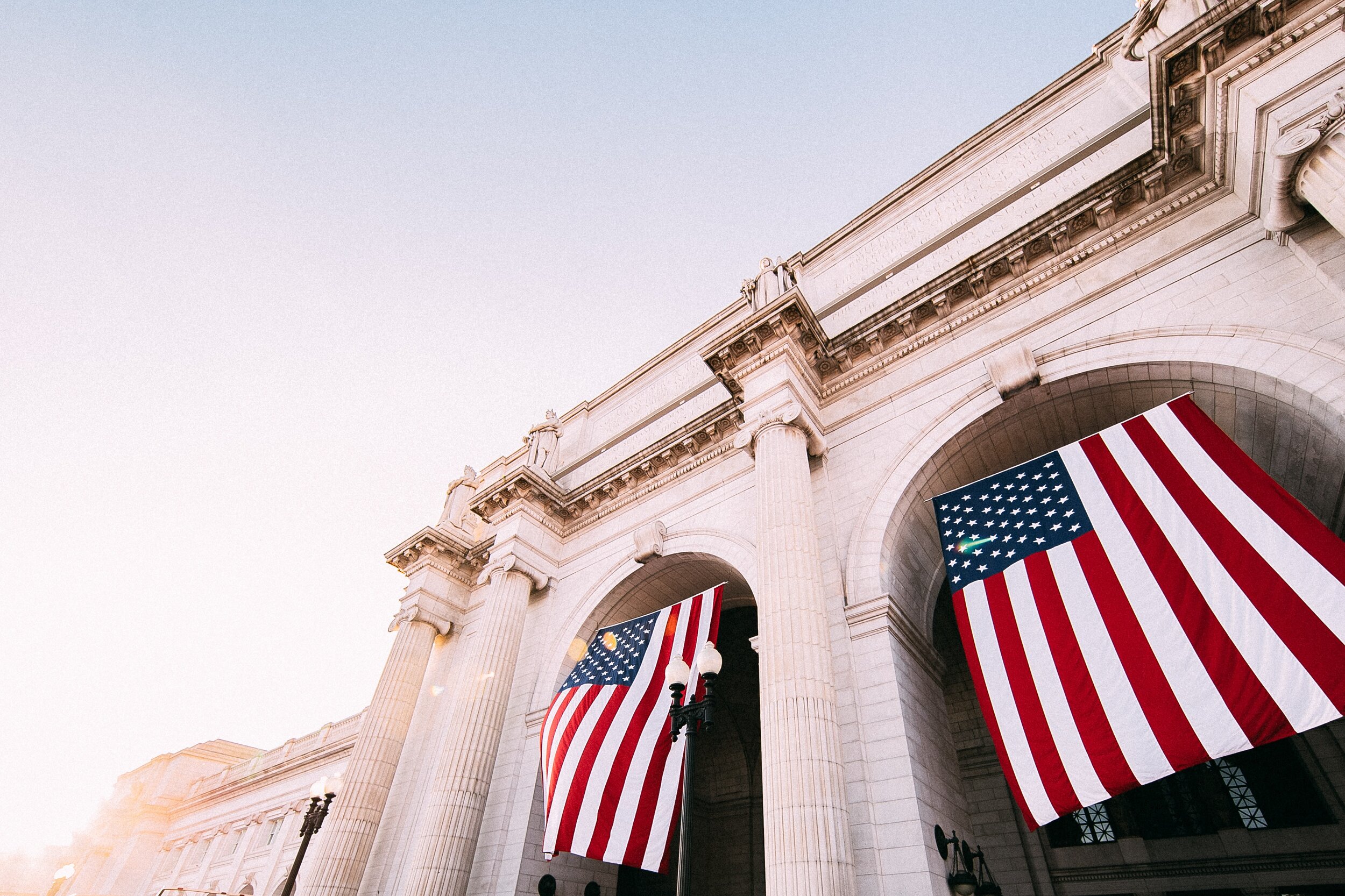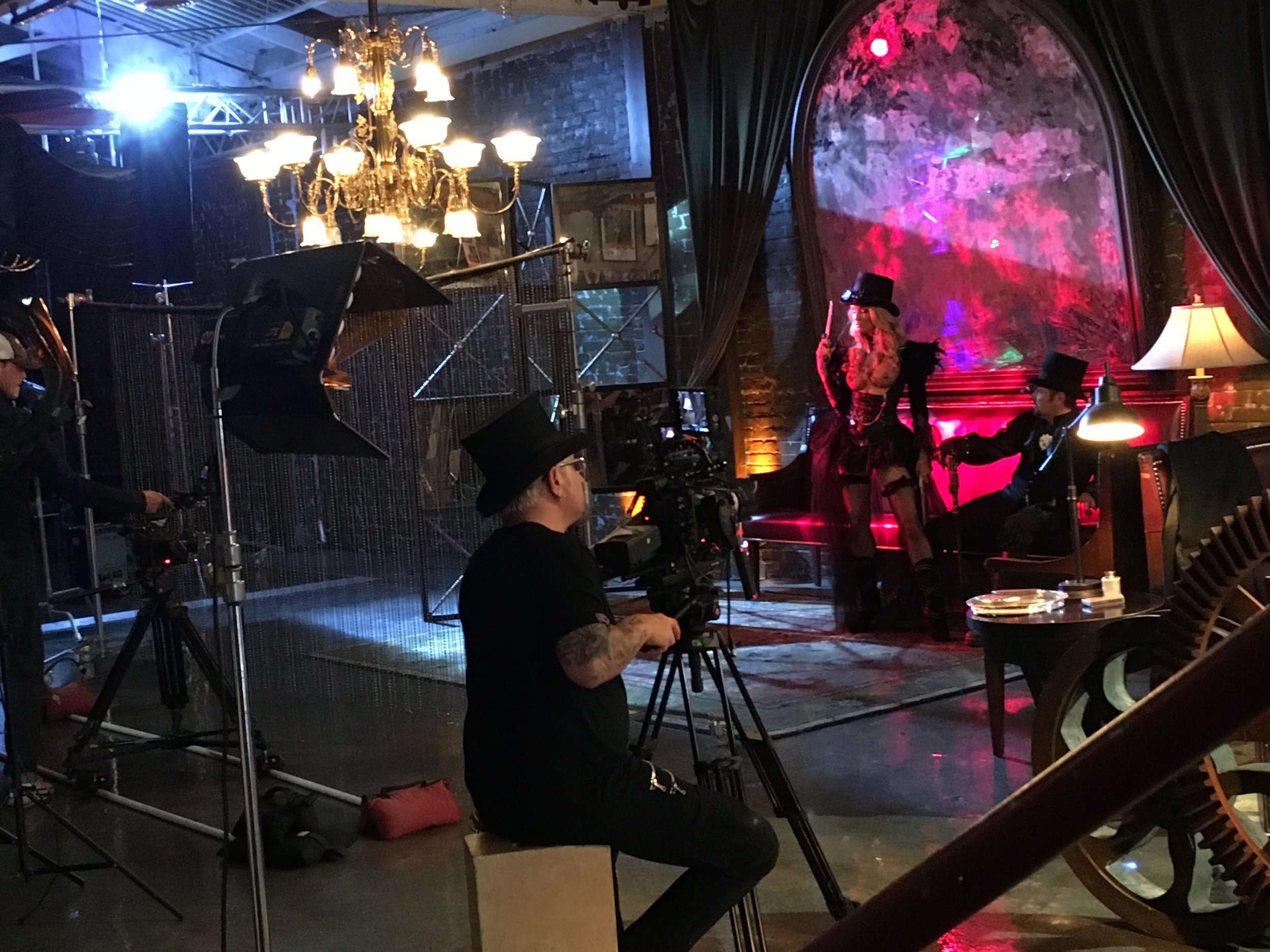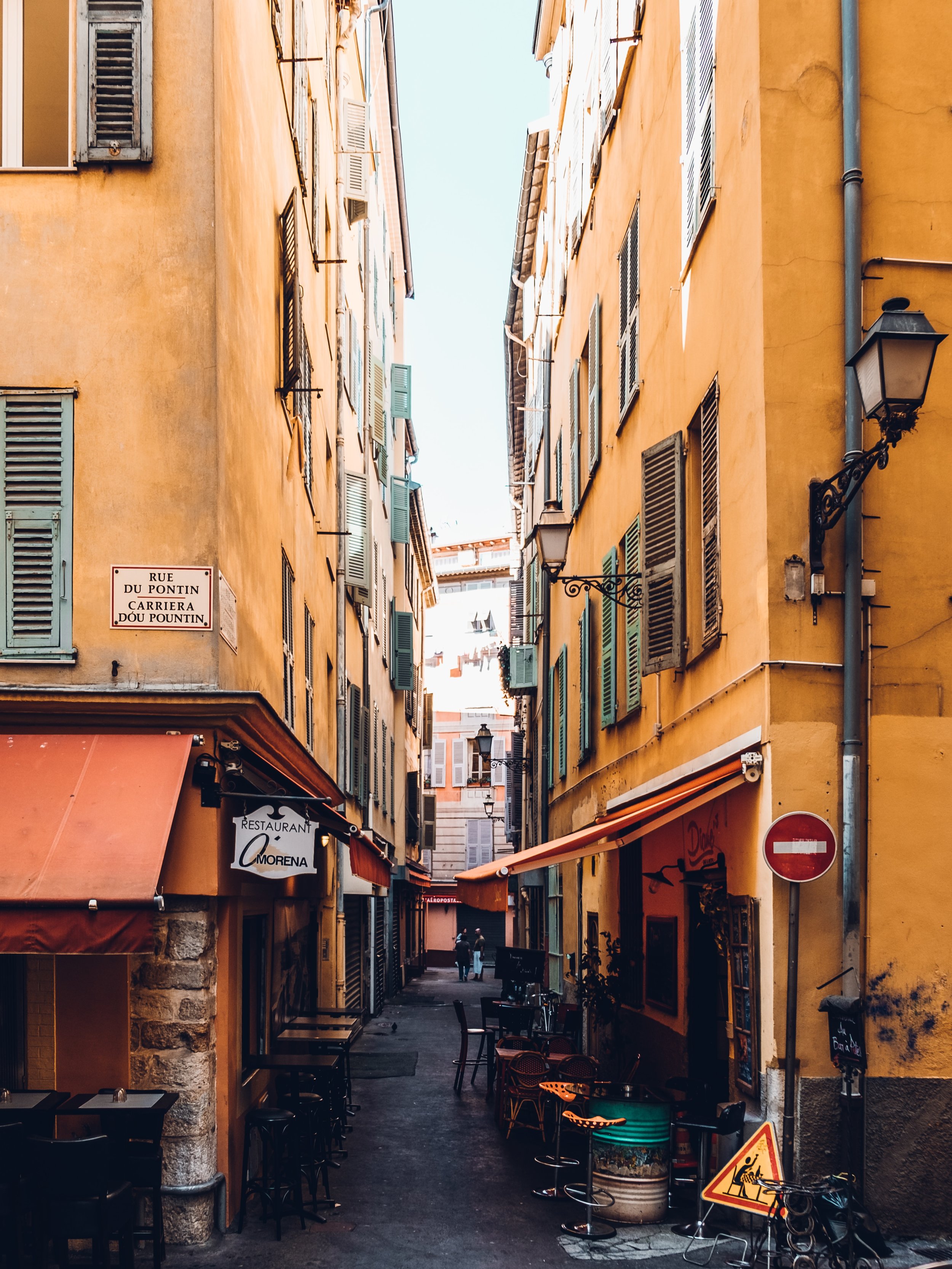Behind the Briefings: Ashley Parker

It was the GIF seen ‘round the world.
Ashley Parker, White House reporter for the Washington Post, listened as then-press secretary Sean Spicer compared Adolf Hitler to Bashar al-Assad, suggesting that Hitler was, somehow, not “as bad” as al-Assad.
Parker’s facial expressions charted a journey of sorts through Spicer’s logic, her eyebrows first lifting ('Is he really saying this?'), then narrowing ('I think he’s really saying this'), and then rising once more in full-on wonderment ('Yes: he really just said that').
Today, that GIF has been retweeted more than 25,000 times. It was funny, of course, but it also offered a reminder—lest you needed one—of the baffling landscape that is the White House in 2017. This is especially true for the journalists tasked with reporting on American politics. OA's Elaina Plott chatted with Parker about how she covers today's White House.
OA: Did you have any clue that the GIF from the briefing room would go viral?
AP: No, no clue at all. Apparently that’s just what I always look like—I actually heard from so many people, including an ex, who said, “Hey, that’s the exact expression you made when I asked you to prom.”
But the other thing is, it was a good reminder that—when you’re in the briefing room—everyone is a bit player, even when your focus is only on the person at the podium. So until I left, it didn’t even occur to me that I was being filmed, or in the background of a shot.
OA: Have you always wanted to cover the White House?
AP: No. I never really wanted to cover the White House. Actually, I always felt like campaigns were a lot more fun. And I always felt like if I were to cover a White House, the way I’d want to do it is only the first year or two of an administration, when it still had some of that freewheeling chaos that makes campaigns so appealing.
OA: It seems like the common criticism is that the White House is so tightly contained that it can be tough to get interesting, colorful reporting.
AP: Right. I don’t actually know firsthand, because this is the first White House I’ve covered. But I can say that this White House certainly does not feel that way. One of the reasons I love covering it so much is because I think it has the flavor of a traditional campaign, with larger than life personalities, a healthy amount of leaks, a bit of color, and—dare I say—chaos, to keep things interesting.
“I apparently have an endless capacity to be obsessed with subjects. I’m obsessed with Trump right now. From just what he was trying to express when he took to Twitter shortly after midnight one night and wrote “Covfefe”...[to] how he’s making decisions on how to handle the crisis in North Korea, I find my beat fascinating.”
OA: One of the things that was unique about the Trump campaign was that he didn’t really pull from the pool of typical Republican operatives that most reporters know well. What was it like trying to cultivate sources in this world where everyone was an outsider?
AP: It’s funny: the first campaign I covered was Mitt Romney in 2012, which I loved. And I felt like, ironically, I'd finally hit my stride and had situational awareness and really great sourcing in October 2012—you know, a month before he lost the election. But the good thing about that, as you mentioned, is that these were traditional operatives. So when I moved on to covering Jeb Bush this cycle, there were a lot of the same people from the Romney world. And had I been put on another Republican campaign, be it Ted Cruz or Marco Rubio, I would’ve been starting with the same baseline relationships.
Obviously, Trump was different. But there are two things to remember: One, every reporter—not just me—was more or less starting from the same place. And two, what we do as reporters is form relationships and build sources, and we often switch beats, so in that sense it was no different. I had to figure out how it worked and who the important people were and how to get them to talk to me and how to write about them fairly.
OA: Once Trump won the primary, you embedded with Mike Pence. What did you take from that experience that later helped you understand the Trump White House better?
AP: I was very lucky that I got to cover Vice President Pence, then candidate Pence, from the moment he was announced, because no one was really paying any attention to him or his aides. They weren’t the sort of conventionally thrilling story that Trump was. So I was really glad I got to know them all very well and early on, because they’ve ended up not just in the Vice President’s office, but also in the West Wing.
“I’m basically convinced that Twitter is ruining my brain. I find that the only times I really think are when I’m in the shower or when I’m running...But that said, it’s also a crucial way of how we do our jobs now....[Twitter’s] the most real-time, up-to-date window into what President Trump is thinking.”
I sort of learned the ways in which Pence was a countervailing force to this President, which is something I always keep in mind in my reporting of what Trump is up to. The President may be saying one thing publicly and on Twitter, and meanwhile the Vice President is back-channeling to Capitol Hill something slightly different.
OA: How do you approach the challenge of covering Trump fairly? Is there ever a moment when it's acceptable for a reporter to veer out of objective coverage and into opinion?
AP: At The Post, from the highest levels on down, we’re committed to covering Trump just as we would any other president—fairly. Now, his presidency is certainly different and unconventional than his predecessors in a variety of ways, but that doesn’t change how we approach our coverage.
OA: Switching gears, what is a typical morning like for you?
AP: It depends. Depending on what my duty shift is, sometimes I have a morning shift, so I’m waking up what feels to me incredibly early. I always felt like one of the perks of being a journalist is that you could kind of roll into work at like 10, 10:30, but now sometimes I’m setting my alarm clock for 6. And then, basically, it’s rolling over, hitting snooze, and finally, at some point, I look at my phone, and the president has tweeted, and I will get out of bed and start filing…
I haven’t covered other White Houses, but my understanding was that George W. Bush was also an early riser. He just didn’t have Twitter—which makes all the difference. Trump’s early morning Twitter habits mean that he often starts making news a wee bit earlier than his predecessors.
OA: What is your relationship with Twitter?
“One thing that was really helpful to me was being good at handling rejection—from sources, editors, anyone....You just have to imagine things are like 6th grade. You’re getting rejected all the time, but have to persist anyway. ”
AP: I would say it’s love/hate, with an emphasis on the hate. I’m basically convinced that Twitter is ruining my brain. I find that the only times I really think are when I’m in the shower or when I’m running—which, interestingly, are the only two times I’m not constantly checking Twitter.
But that said, it’s also a crucial way of how we do our jobs now. I’ve found that a well-curated twitter feed is like the best RSS feed; it’s the best way to know what’s breaking, what scoops your competitors have. And then of course, with this White House, it’s the most real-time, up-to-date window into what President Trump is thinking.
OA: What about Trump's relationship with Twitter? Do you get the sense that it's also love/hate, or uniformly love?
AP: I think the president’s relationship with Twitter is love-love. He’s repeatedly said that it’s the medium that allows him to best circumvent the media and speak directly to his base. And we also know it’s the place where he goes when he wants to vent, or seek affirmation. Now, his aides’ relationship with his Twitter may be a bit more complex…
OA: How do you prefer to communicate with sources?
AP: I’m pretty traditional. As a rule I really like to meet sources face-to-face. I just think that’s better. But I will basically communicate with sources however they will communicate with me. Which can mean dropping everything to meet them in a parking garage, or…
OA: Wait, really?
AP: [Laughs] Not quite a parking garage. But I have had sources who can’t imagine anything worse than being spotted with a Washington Post reporter, so we’ve been creative about where we’ve met.
OA: I’m picturing you as Olivia Pope right now.
AP: Yeah, but without, like, the cool outfits and the big white hat.
OA: Being on the clock at all times like that, do you ever worry about burnout?
AP: I’m fully convinced that one day my body is just going to totally crumble. But I have to say, I feel like there’s a level of adrenaline in the stories and the day-to-day that makes it all so exciting, so that even on really busy or stressful days, the time passes really quickly.
OA: What are the misperceptions about being a White House reporter?
AP: My perception, at least before I covered campaigns, was that there was nothing more glamorous. The whole reason I wanted to cover Mitt Romney was because in 2008, when I worked at The New York Times as a research assistant for Maureen Dowd, she brought me out on the campaign trail a good amount. And I just could not imagine anything cooler than being one of the reporters who got to travel around and cover one of the candidates.
But of course, it’s not all glamorous. I could list, like, several hotels I would warn you against in various cities around the country.
OA: Are you sick of Trump yet?
AP: I’m not sick of him. It’s my job, and I have to say, and this goes for anyone I’ve covered, I apparently have an endless capacity to be obsessed with subjects. I’m obsessed with Trump right now. From just what he was trying to express when he took to Twitter shortly after midnight one night and wrote “Covfefe,” and who he’s talking to on his cell phone in the pre-dawn hours, to who he’s filled his West Wing with and how he’s making decisions on how to handle the crisis in North Korea, I find my beat fascinating.
OA: What’s your advice for other political journalists?
AP: One thing that was really helpful to me was being good at handling rejection—from sources, editors, anyone. Not getting upset about rejection, and just being dogged and persistent—all those traits will serve you just as well by the time you make it. You just have to imagine things are like 6th grade. You’re getting rejected all the time, but have to persist anyway.
ABOUT THE INTERVIEWER
Elaina Plott is a staff writer at Washingtonian magazine, and has written for GQ, the New York Observer, Harper's BAZAAR, and Town & Country. She also covered Congress for National Review.
Header photo by G. Grescoli.


